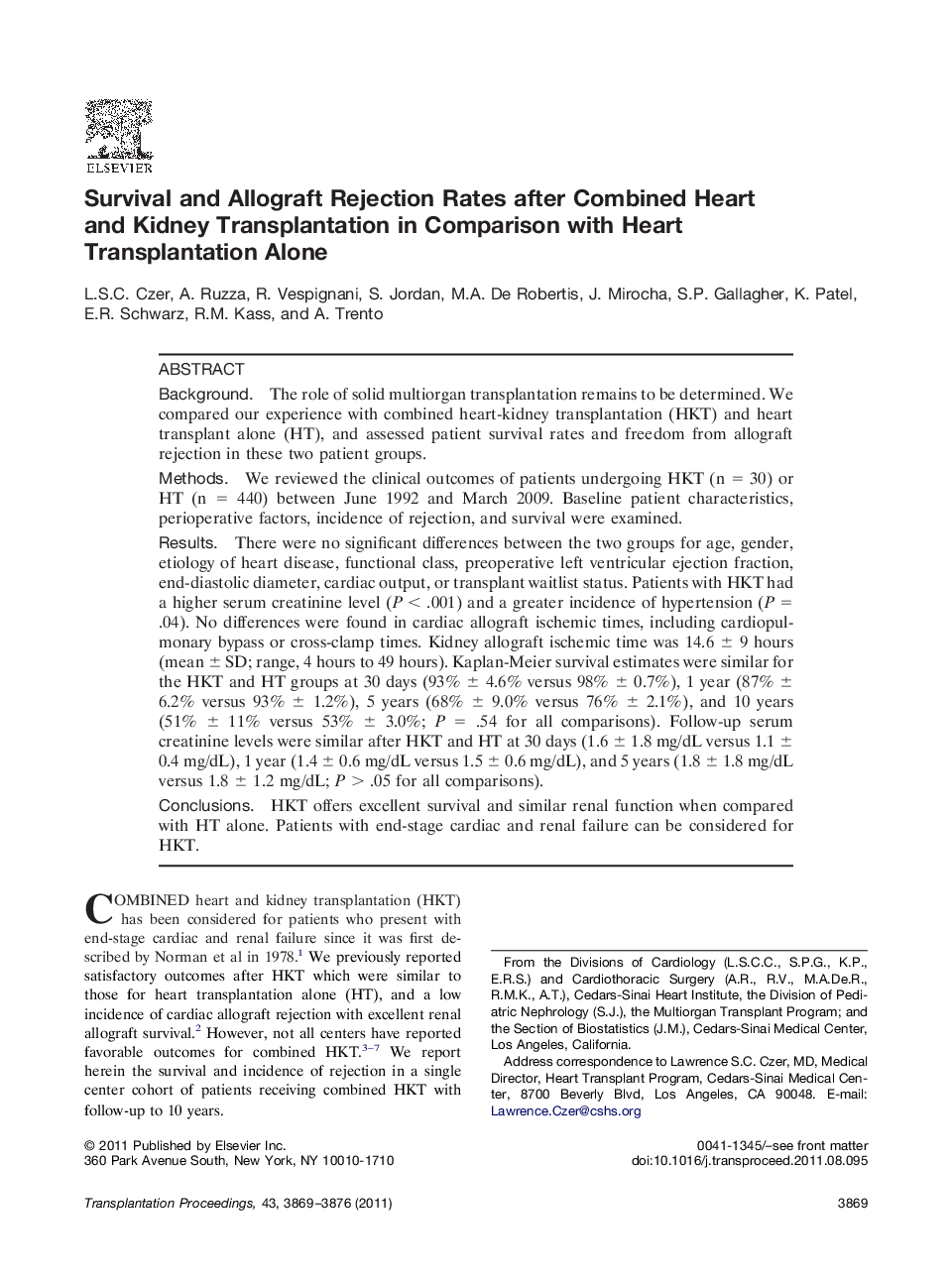| Article ID | Journal | Published Year | Pages | File Type |
|---|---|---|---|---|
| 6249015 | Transplantation Proceedings | 2011 | 8 Pages |
BackgroundThe role of solid multiorgan transplantation remains to be determined. We compared our experience with combined heart-kidney transplantation (HKT) and heart transplant alone (HT), and assessed patient survival rates and freedom from allograft rejection in these two patient groups.MethodsWe reviewed the clinical outcomes of patients undergoing HKT (n = 30) or HT (n = 440) between June 1992 and March 2009. Baseline patient characteristics, perioperative factors, incidence of rejection, and survival were examined.ResultsThere were no significant differences between the two groups for age, gender, etiology of heart disease, functional class, preoperative left ventricular ejection fraction, end-diastolic diameter, cardiac output, or transplant waitlist status. Patients with HKT had a higher serum creatinine level (P < .001) and a greater incidence of hypertension (P = .04). No differences were found in cardiac allograft ischemic times, including cardiopulmonary bypass or cross-clamp times. Kidney allograft ischemic time was 14.6 ± 9 hours (mean ± SD; range, 4 hours to 49 hours). Kaplan-Meier survival estimates were similar for the HKT and HT groups at 30 days (93% ± 4.6% versus 98% ± 0.7%), 1 year (87% ± 6.2% versus 93% ± 1.2%), 5 years (68% ± 9.0% versus 76% ± 2.1%), and 10 years (51% ± 11% versus 53% ± 3.0%; P = .54 for all comparisons). Follow-up serum creatinine levels were similar after HKT and HT at 30 days (1.6 ± 1.8 mg/dL versus 1.1 ± 0.4 mg/dL), 1 year (1.4 ± 0.6 mg/dL versus 1.5 ± 0.6 mg/dL), and 5 years (1.8 ± 1.8 mg/dL versus 1.8 ± 1.2 mg/dL; P > .05 for all comparisons).ConclusionsHKT offers excellent survival and similar renal function when compared with HT alone. Patients with end-stage cardiac and renal failure can be considered for HKT.
